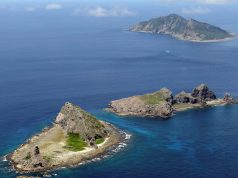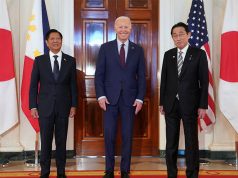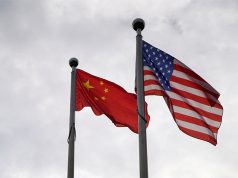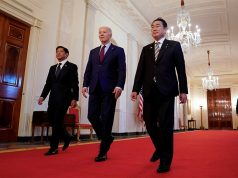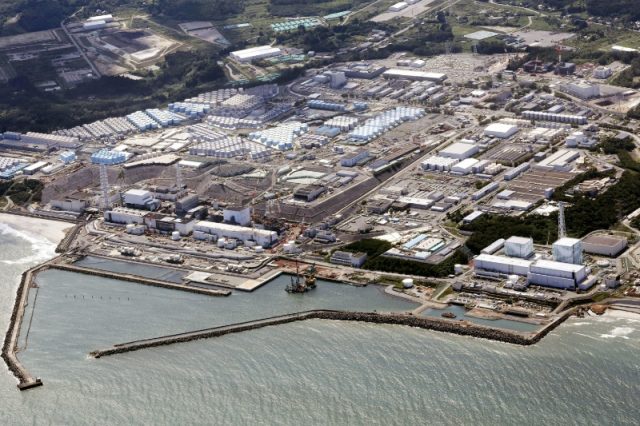
TOKYO — Japan on Thursday started releasing treated radioactive water from the wrecked Fukushima nuclear power plant into the Pacific Ocean, a polarising move that prompted China to announce an immediate blanket ban on all seafood imports from Japan.
China is “highly concerned about the risk of radioactive contamination brought by… Japan’s food and agricultural products exported to China,” a Chinese customs official said in a statement.
Signed-off two years ago by the Japanese government and approved by the U.N. nuclear watchdog last month, the discharge is a key step in a dauntingly long and difficult process of decommissioning the Fukushima Daiichi plant after it was destroyed by a tsunami.
Plant operator Tokyo Electric Power said the release began at 1:03 p.m. local time and it had not identified any abnormalities with the seawater pump or surrounding facilities.
However, China reiterated on Thursday its firm opposition to the plan and said the Japanese government had not proved the legitimacy of the water discharge.
“The Japanese side should not cause secondary harm to the local people and even the people of the world out of its own selfish interests,” China’s foreign ministry said in a statement on Thursday.
Tokyo has in turn criticized China for spreading “scientifically unfounded claims.”
It maintains the water release is safe, noting that the International Atomic Energy Agency (IAEA) has also concluded that the impact it would have on people and the environment was “negligible.”
Decades-long process
The Fukushima Daiichi plant was destroyed in March 2011 after a massive 9.0 magnitude earthquake generated powerful tsunami waves that caused the meltdowns of three of its reactors.
Japanese fishing groups, hit with years of reputational damage from radiation fears, have long opposed the plan. Fears that it would lead to a loss of exports to major markets appeared to be borne out by the indefinite Chinese ban.
“The fishing communities of Japan are feeling increasingly anxious as they witness this moment” despite the government’s assurances, the head of the Japan Fisheries Co-operative said in a statement.
Japan exported about $600 million worth of aquatic products to China in 2022, making it the biggest market for Japanese exports, with Hong Kong second. Sales to China and Hong Kong accounted for 42% of all Japanese aquatic exports in 2022, according to government data.
South Korean Prime Minister Han Duck-soo said import bans on Fukushima fisheries and food products will stay in place until public concerns were eased.
The water will be released in smaller portions initially and with extra checks. The first discharge totaling 7,800 cubic meters—the equivalent of about three Olympic swimming pools of water—will take place over about 17 days.
According to Tepco test results released on Thursday, that water contains about up to 63 becquerels of tritium per liter, below the World Health Organization drinking water limit of 10,000 becquerels per liter. A becquerel is a unit of radioactivity.
The IAEA also released a statement saying its independent on-site analysis had confirmed the tritium concentration was far below the limit.
Japan will conduct monitoring around the water release area and publish results weekly, starting on Sunday, the environment minister said.
Tepco expects the process of releasing the wastewater—currently totaling more than 1.3 million metric tons—to take about 30 years.
Civic groups have launched protests in Japan and South Korea, although South Korea’s government has said its own assessment found no problems with the scientific and technical aspects of the release.
South Korean police arrested at least 14 protesters who entered the Japanese embassy in Seoul, according to an organizer and a Reuters witness.
Ahead of the release, a few dozens protesters gathered in front of Tepco’s headquarters in Tokyo holding signs reading “Don’t throw contaminated water into the sea!” The rally was over in about an hour.
“The Fukushima nuclear disaster is not over. This time only around 1% of the water will be released,” 71-year-old Jun Iizuka, who attended the protest, told Reuters. “From now on, we will keep fighting for a long time to stop the long-term discharge of contaminated water.”
– Reporting by Sakura Murakami, Chang-Ran Kim, Kantaro Komiya and Irene Wang in TOKYO, Bernard Orr in Beijing, Soo-hyang Choi and Josh Smith in Seoul; Editing by Raju Gopalakrishnan and Lincoln Feast





